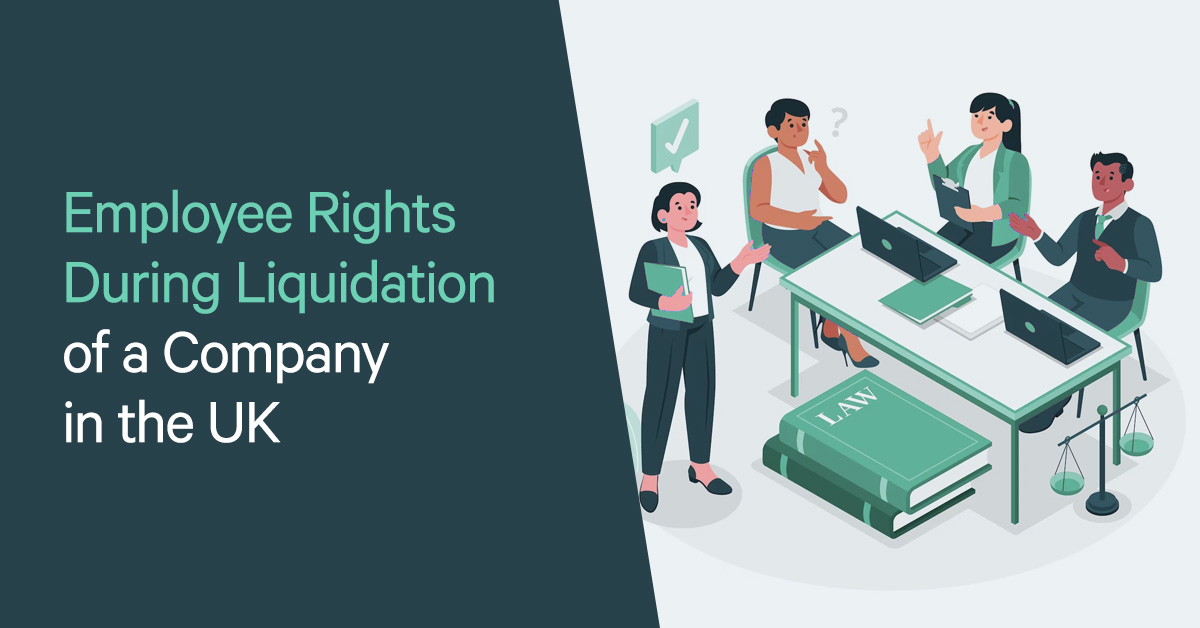Do You Still Get Redundancy If Company Goes Into Administration? Insights for Administration Staff and Their Pay
Do You Still Get Redundancy If Company Goes Into Administration? Insights for Administration Staff and Their Pay
Blog Article
Business Insolvency Company
7 Preswich Avenue, Leigh, WN7 1RZ
0333 567 1686
The Effect of Business Liquidation on Staff Member Civil Liberties, Payment, and Job Stability
In the world of company characteristics, the dissolution of a business due to liquidation can cast a darkness of unpredictability over the fate of its staff members. Recognizing the complexities of how firm liquidation affects workers is critical for browsing the intricacies that develop in such conditions.
Lawful Protections for Workers
Lawful Defenses for Employees guarantee that employees' civil liberties are guarded and upheld in the event of firm liquidation. These protections offer as a critical safety and security web for staff members encountering uncertainties because of their employer's financial difficulties. One essential defense is the Worker Adjustment and Retraining Alert (WARN) Act, which needs companies with over 100 staff members to give advancement notice of at the very least 60 days before a plant closing or mass layoff.
In Addition, the Fair Labor Specification Act (FLSA) mandates that employees need to obtain their last paycheck without delay upon termination, including any type of accrued getaway time or bonus offers. This regulation aims to avoid companies from withholding settlement owed to employees during the liquidation process. In addition, the Employee Retirement Income Safety And Security Act (ERISA) safeguards workers' retirement funds by establishing criteria for personal pension plans and guaranteeing that these funds are secure, even in the occasion of a business's insolvency.
Influence on Payment Packages
Amid firm liquidation, the restructuring of payment packages typically results in substantial modifications for employees. When a firm goes into liquidation, staff members are confronted with the possible loss or decrease of various parts of their payment packages, such as rewards, profit-sharing, and supply options. In most cases, outstanding repayments for overtime, extra holiday days, or various other benefits might additionally go to risk because of the economic restrictions encountered by the company throughout the liquidation process.
Furthermore, the termination of employment agreement during liquidation can cause disputes over severance pay and various other forms of payment that workers are qualified to under their agreements or regional labor regulations. Employees may locate themselves in a perilous situation where they have to bargain with trustees or liquidators to protect fair compensation for their years of solution to the firm.
Job Safety Problems
During firm liquidation, staff members typically face heightened work safety concerns as the future of their positions becomes unpredictable. The possibility of losing their work due to the closure of the company can produce substantial anxiousness amongst employees. Job safety and security issues during liquidation are worsened by the absence of quality regarding the timeline of the process, potential redundancies, and the overall stability of business.
Employees may fret about their financial stability, career prospects, and the availability of comparable work possibilities in the marketplace. Unpredictability bordering the liquidation procedure can cause reduced task, morale, and productivity satisfaction amongst staff members. Furthermore, the worry of job loss can influence workers' mental health and well-being.
Employers are motivated to interact freely and transparently with employees throughout the liquidation procedure to deal with job security problems. Providing normal updates, using support solutions, and exploring different task alternatives can assist minimize a few of the anxieties workers may experience throughout business liquidation. By focusing on worker health and maintaining clear interaction, employers can alleviate the negative influence of job protection issues throughout this challenging duration.
Employee Privileges and Insurance Claims

Employees are normally entitled to get overdue wages for a given duration before the liquidation, which may vary by nation. In addition, redundancy repayments are often offered to employees who are made repetitive as an outcome of the liquidation process.
Approaches for Browsing Uncertainty
In times of business liquidation, workers can utilize tactical methods to browse with uncertainty and safeguard their entitlements and rights properly. Keeping abreast of the liquidation procedure, comprehending their civil liberties under labor legislations, and looking for legal guidance if needed can encourage staff members to make enlightened decisions.
A critical action for staff members is to prioritize their economic safety. This can entail discovering alternatives such as making an application for overdue incomes via federal government plans, comprehending the hierarchy of financial institutions to assess the likelihood of obtaining superior repayments, and developing a personal budget to manage finances throughout the transition duration. Additionally, updating resumes, improving abilities via training programs, and actively seeking choice employment can assist staff members protect their future beyond the liquidated company.

Verdict
In verdict, firm liquidation can have significant effects on worker rights, payment, and task security. It is essential for employees to recognize their lawful protections, entitlements, and prospective cases in such situations. Browsing unpredictability throughout business liquidation needs mindful consideration of approaches to safeguard one's interests and civil liberties. Employee concerns concerning work safety and payment plans have to be addressed within the lawful framework to make certain fair treatment and appropriate compensation.

When a company goes right into liquidation, staff members are faced with the possible loss or decrease of different parts of their payment bundles, such as incentives, profit-sharing, and stock options.Throughout firm liquidation, workers usually deal with enhanced task safety concerns as the future of their placements comes to be unclear. Providing normal updates, offering assistance solutions, and checking out alternate work options can aid check alleviate some of the anxieties workers might browse around here experience throughout company liquidation.In conclusion, business liquidation can have considerable implications on worker legal rights, compensation, and work security.
Report this page